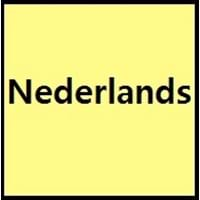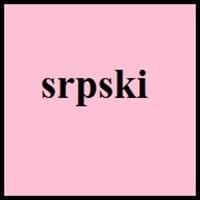Countries
Aruba, Belgium, Curacao, Netherlands, Sint Maarten, Suriname
Bosnia and Herzegovina, Kosovo, Serbia, Slovakia
National Language
Aruba, Belgium, Curacao, Netherlands, Sint Maarten, Suriname
Bosnia, Croatia, Montenegro, Serbia
Second Language
South Africa
Not spoken in any of the countries
Speaking Continents
Asia, Europe, North America, South America
Europe
Minority Language
France, Germany, Indonesia
Croatia, Czech Republic, Hungary, Macedonia, Montenegro, Romania, Slovakia
Regulated By
Nederlandse Taalunie (Dutch Language Union)
Board for Standardization of the Serbian Language
Interesting Facts
- Dutch language consist of extremely long words. The longest dutch word in the dictionary is 53 letters long.
- There exists 75% borrowed words in Dutch language, and a lot of those are French, English and Hebrew.
- Serbian language was derived from the Old Church Salvic, as the language was commonly spoken by most of Slavic people in the 9th Century.
- Serbian language is based on Stokavian dialect.
Similar To
German and English Languages
Bosnian and Croatian Languages
Derived From
Not Available
Not Available
Alphabets in
Dutch-Alphabets.jpg#200
Serbian-Alphabets.jpg#200
Scripts
Latin
Cyrillic, Latin
Writing Direction
Left-To-Right, Horizontal
Left-To-Right, Horizontal
Hello
Hallo
Здраво (Zdravo)
Thank You
dankjewel
Хвала лепо (Hvala lepo)
How Are You?
hoe gaat het met je?
Како си? (Kako si?)
Good Night
goede Nacht
Лаку ноћ (Laku noć)
Good Evening
goedenavond
Добро вече (Dobro veče)
Good Afternoon
goedemiddag
Добар дан (Dobar dan)
Good Morning
goedemorgen
Добро јутро (Dobro jutro)
Please
alsjeblieft
Молим (Molim)
Sorry
sorry
Жао ми је (Žao mi je)
Bye
vaarwel
Довиђења (Doviđenja)
I Love You
Ik hou van jou
Волим те (Volim te)
Excuse Me
pardon
Извините (Izvinite)
Dialect 1
Gronings
Prizren-Timok
Where They Speak
Netherlands
Southeastern Serbia
How Many People Speak
Not Available
Dialect 2
Low Saxon
Smederevo–Vršac
Where They Speak
Denmark, Germany, Netherlands
Serbia
How Many People Speak
Not Available
Dialect 3
Limburgian
Torlakian
Where They Speak
Belgium, Netherlands
Bulgaria, France, Kosovo, Macedonia, Romania, Serbia
Speaking Population
Not Available
Second Language Speakers
Not Available
Native Name
Nederlands
српски (srpski) српски језик (srpski jezik)
Alternative Names
Hollands, Nederlands
Montenegrin
French Name
néerlandais; flamand
serbe
German Name
Niederländisch
Serbisch
Pronunciation
[ˈneːdərlɑnts]
[sr̩̂pskiː]
Ethnicity
Dutch people
Serbs
Origin
AD 450-500
11th Century
Language Family
Indo-European Family
Indo-European Family
Subgroup
Germanic
Not Available
Branch
Western
Not Available
Early Forms
Old Dutch, Middle Dutch and Dutch
No early forms
Standard Forms
Standard Dutch
Standard Serbian
Signed Forms
Signed Dutch (Nederlands met Gebaren)
Not Available
Scope
Individual
Individual
ISO 639 6
Not Available
Not Available
Glottocode
mode1257
serb1264
Linguasphere
52-ACB-a
53-AAA-g
Language Type
Historical
Living
Language Linguistic Typology
Subject-Object-Verb
Subject-Verb-Object
Language Morphological Typology
Synthetic
Not Available
Dutch and Serbian Greetings
People around the world use different languages to interact with each other. Even if we cannot communicate fluently in any language, it will always be beneficial to know about some of the common greetings or phrases from that language. This is where Dutch and Serbian greetings helps you to understand basic phrases in Dutch and Serbian language. Dutch word for "Hello" is Hallo or Serbian word for "Thank You" is Хвала лепо (Hvala lepo). Find more of such common Dutch Greetings and Serbian Greetings. These greetings will help you to be more confident when conversing with natives that speak these languages.
Dutch vs Serbian Difficulty
The Dutch vs Serbian difficulty level basically depends on the number of Dutch Alphabets and Serbian Alphabets. Also the number of vowels and consonants in the language plays an important role in deciding the difficulty level of that language. The important points to be considered when we compare Dutch and Serbian are the origin, speaking countries, language family, different greetings, speaking population of these languages. Want to know in Dutch and Serbian, which language is harder to learn? Time required to learn Dutch is 24 weeks while to learn Serbian time required is 44 weeks.





